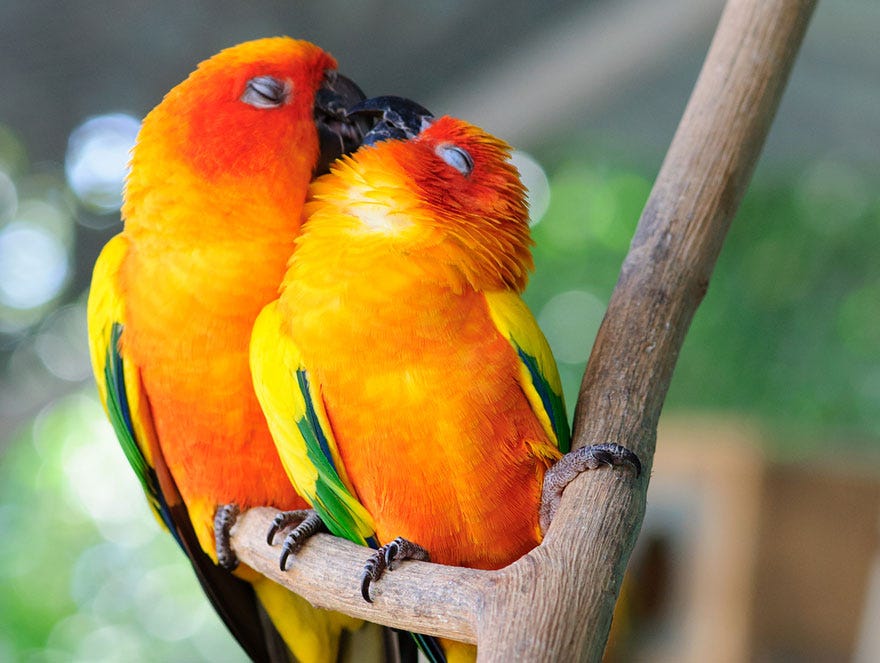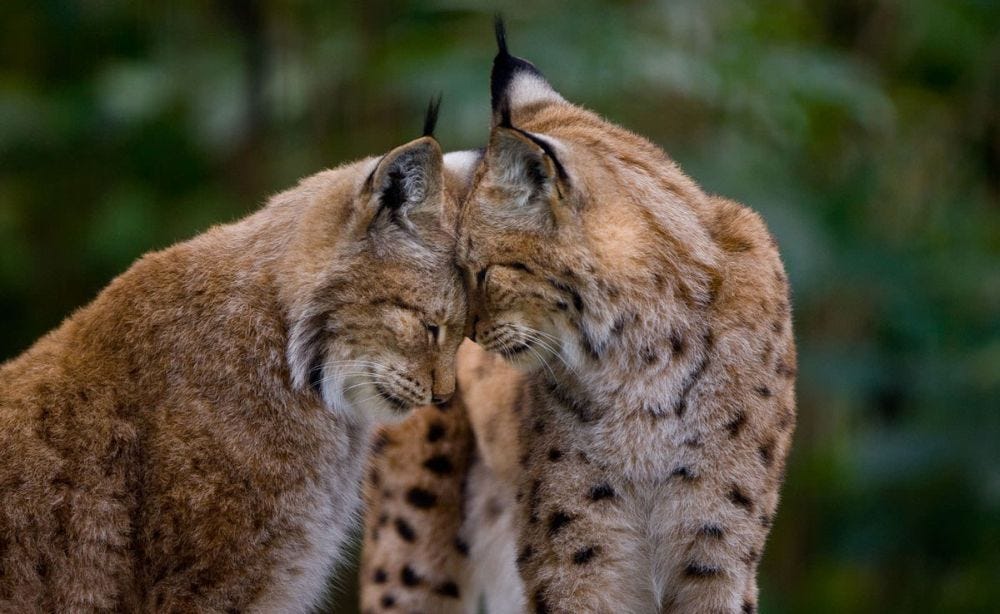1. Philosophical Questions About Love
What is going on when you love someone? There are a few popular theories about this (also some academic philosophical theories, but I don’t feel like looking up those). This question breaks into a few sub-questions:
What commonly causes someone to love someone else? (Either in most humans, or in psychologically healthy humans, or something like that.)
What reasons, if any, do we have for loving someone?
When you love someone, must there be something that you love about them? If so, what sort of things do we or should we typically love about people? Or do we just love a person in general?
These are intertwined. Perhaps if we answered #3, that would also give us straightforward answers to (1) and (2).
A theory of love would answer these sorts of questions. I suspect that many people have implicit theories of love, but they may be confused or just false. Let’s think about some possibilities.
2. The “Good Qualities” Theory
It is common for people to talk about what they love about someone, or why they love someone, citing some perceived qualities of the person. So it appears that we do not simply love a person in general but love certain qualities of them (or love them for those qualities).
If that’s true, it’s natural that the qualities in question should be good qualities. This isn’t to say that no one could ever love a bad quality. But perhaps there would be something defective or unhealthy about that situation. In the ideal case, when you love someone, you see them as having some valuable qualities (perhaps morally valuable, or perhaps just beneficial to you), and you love them for that reason.
Here are five problems for this view:
The Clone: Suppose a clone of me is made. The clone has the same sparkling wit as me, the same debonair social grace, the same rugged good looks. As soon as my wife meets him and verifies that he has these qualities, will she now love the clone? Iskra has assured me that the answer is no.
The Improved Husband: For an even more science-fiction scenario, imagine that somehow, we were to find a man similar to me but with a few slightly improved qualities—say, a little bit better taste in shoes, and a little bit shorter nose hair. Iskra insists that she would not then love this other person more than me.
The Baby: Think of the love of a mother for her child, which is often considered the strongest and truest love to be found on this Earth. Mothers commonly love their children from the moment of their birth. Yet these babies have displayed no qualities that merit such love.
Harry and Sally: In When Harry Met Sally, Harry explains what he loves about Sally:
“I love that you get cold when it’s 71 degrees out. I love that it takes you an hour and a half to order a sandwich. I love that you get a little crinkle above your nose when you’re looking at me like I’m nuts. …”
These don’t appear to be particularly good qualities, nor are they plausible reasons to love a person. It is unlikely that, were Sally to remain warm during 71-degree weather, Harry’s love would diminish.
Saints and Sinners: Actually, it’s quite easy to fail to love (or even like?) a person who seems morally good, and it’s easy to love people who have serious flaws, perhaps even who are overall bad people. That happens all the time. (Since most of us suck, we find it easier to relate to other people who suck.)
3. Other Qualities
Cases 4 and 5 above could be addressed by proposing that we love some qualities about people, but not necessarily good ones. Perhaps we love qualities that we can relate to, or that are beneficial to us, or that will help to increase our reproductive fitness if we mate with that person. This doesn’t explain the Harry/Sally traits, but perhaps those are not really Harry’s reasons for loving Sally.
But this doesn’t deal with the Clone and Baby examples above. You can also alter Improved Husband to stipulate that the new man has more of whatever qualities (good or bad) women love.
So it appears that we do not in general love people for their qualities.
Caveat:
This is not to deny that certain qualities are necessary to love someone (or: certain qualities are disqualifying). E.g., perhaps you could never love a psychopath, or a short man, or an overweight woman. (Actually, the first of these is probably false; psychopaths often have great success attracting love.) Still, you would not say that you love your partner for his or her non-psychopathy, height, and healthy weight.
There are also qualities that make it easier to love someone, such as beauty, intelligence, or agreeableness. Some of these qualities are specific to an individual (e.g., maybe you find it easier to love people who share your musical taste).
There remains a wide range of qualities that a person could have such that you could love them in the right circumstances. (If you’re at least somewhat loving.)
4. History
After defending his “historical conception of distributive justice”, Robert Nozick notes that, like property rights, “love is historical”. I.e., your love for someone derives from your particular history with that person. That is why love grows over time, and that is why if you meet someone with the same or better qualities tomorrow, you won’t then love that person as you love your current partner.
This only fails for cases of quick, low-history love, such as the mother who loves her baby as soon as she “meets” it. They don’t have any interesting history as yet. There are also reported cases of “love at first sight”, although you might wonder if these are genuine love.
5. Biology
It is striking to me how little most people think about our biological nature, even when it is obviously relevant. Our culture is suffused with hostility to biology. We don’t like to think of the fact that we are animals, or that nature designed us for reproductive success, or that chemicals in our brains make us feel the way we do. We like to pretend that we were made by God in the image of God, or that we made ourselves, or that we are purely rational souls.
But we are animals. We split off from apes in the recent past, and from simpler animals before that. And that’s relevant right now because the other animals have love too. Some photos:
It is very hard not to see those animals as feeling something like what the humans in the picture at the top feel. All these animals, including the humans, are obviously doing the same thing (some more cutely than others).
If the other animals have love, then we inherited it from our animal ancestors. It may have changed to some degree during the past 200,000 years because of our rapid brain development, but there is going to be a core phenomenon that is common to the animals and us. So your theory of love better not be something that only makes sense for sophisticated, rational souls, like the “good qualities” theory above. Love is a biological adaptation.
Why did nature give animals love? Love makes animals want to mate with each other, then stay together while they raise the offspring. Love makes a mother want to protect and care for her offspring. Love makes friends want to help each other. All of these things increased reproductive success in the past. That’s why today we have the capacity for love. It would be very strange if we didn’t have to think about that at all in order to understand the nature of love.
So love has a motivational component. It makes you want to help, protect, and be close to your love object, with different kinds of love having somewhat different motivational profiles (e.g., protection is especially prominent for parent-child love). By the way, why are the animals above pictured pressing their heads or faces together? That behavior does not appear to be adaptive. It’s a byproduct of love, which makes you want to be close to your love object. Closeness in general makes you better at protecting or helping your love object. For humans, by the way, the desires for physical and emotional closeness seem to naturally go together, and perhaps emotional intimacy makes you better at helping your love object emotionally, just as physical closeness makes you better at helping your love object physically. The animals pressing their faces together are just taking the closeness to a greater-than-necessary extreme.
Obviously, this does not mean that when you love someone, you are thinking to yourself, “I think I’ll increase my reproductive success now.” You need love (or nature needs you to feel love) precisely because you aren’t thinking that. You probably don’t care about reproductive success. Nature just gave you a feeling that is designed to make you do the stuff that usually contributed to reproductive success. You don’t have to know, and most people do not know, why you feel that way.
Also, by the way, knowing why you feel the way you do doesn’t necessarily change anything about the way you feel or behave. E.g., maybe you don’t want to reproduce. Does that mean that now you’ll stop helping your partner, once you realize that love is an adaptation to help you reproduce? No, you’ll probably keep helping because you still in fact love your partner, whether or not you’re reproducing.
Back to our starting questions about what makes us love someone. Once we understand the biological nature of love, it does not make sense that love would be solely about the love object’s general qualities, whether virtuous or otherwise. It makes sense that love would be tied to the love object’s relationship to us and role in our lives, because those things determine how the other person bears on your reproductive success.
And that is how it is. The mother loves the baby because it is her baby. An otherwise identical baby belonging to someone else would not elicit her love. Mothers who gave their love to the best babies, or the cutest, or the most objectively lovable babies, would not have left behind very many copies of their genes. That’s also why even if the baby grows up to be a terrible person, the mother will probably still love him.
Likewise, you probably love your partner because they’re your partner, i.e., because of the relationship you have developed with them. (Again, allowing for certain traits that make it easier to love a person and certain traits that are dealbreakers.) The clone or “improved husband” doesn’t get the same love because he’s not in fact your partner. If you go on to develop a relationship with the clone, then you might come to love him, but not before.
What’s going on with Harry and Sally? Harry actually loves Sally because of the close relationship he has developed with her. The qualities he’s listing are qualities that he likes because he sees them as distinctive of Sally; he probably never liked those things before and would not like them now if they weren’t Sally’s distinctive qualities.
6. Love Norms
The above is about why we actually love certain people. But perhaps there is a further question of when love is appropriate, independent of when it is likely to occur. In some cases, love seems inappropriate. E.g., the woman who married Ted Bundy (the psychopath who murdered over 30 women for fun during the 1970s) while Bundy was on trial for murder probably loved him, but this love was inapt. Bundy was not worthy of love.
At the same time, there are probably many people who deserve love but do not receive it. The “good qualities” theory above is perhaps the theory for some morally perfect species, not us. A morally wonderful person might just be physically unattractive, or too shy to make friends, or too short, or too low status. Because humans are designed by nature, and nature does not care about goodness, it is entirely possible for these people to go through life without love.








I thought that was a really great post. I have sometimes tried to think all this through but always failed. This description is probably the best explanation for love I've read. Thanks for that.
Great article, seems like it has the potential to explain why arranged marriages work better than a lot of Westerners expect. Love develops naturally because it’s clearly your partner.